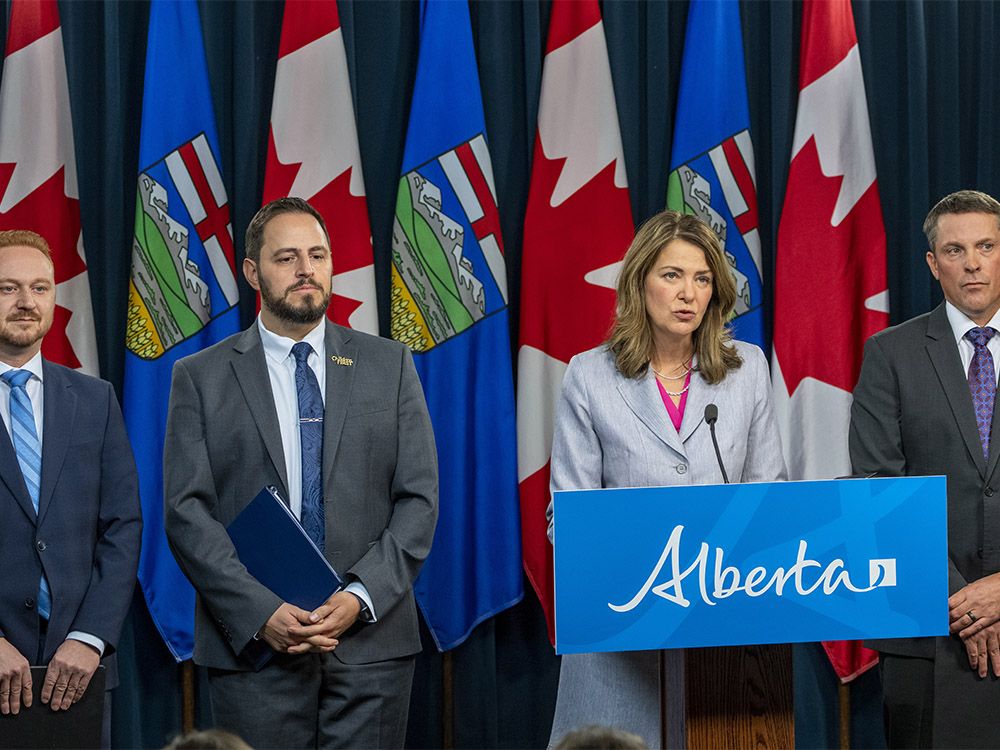Not to double post but...
The Electoral Boundaries Commission has released its proposed maps of electoral divisions for the next election; they seem to have kept their heads on their necks. In my quick glance at Calgary I actually think these maps could lead to a worse outcome for the UCP.
2023 Election Results
View attachment 691901
Proposed Calgary Buffalo
View attachment 691902
Proposed Calgary Confluence
View attachment 691903
The 2025 Electoral Boundaries Commission has been established Alberta’s population has increased substantially in the last eight years since the previous Electoral Boundaries Commission. The Electoral Boundaries Commission Act requires a review of our provincial constituency boundaries prior to...

abebc.ca
PDF maps for the interim report are available below: Quick links: Calgary | Edmonton | Rest of Alberta | Option B Calgary ED01_CALGARY_ACADIA ED02_CALGARY_BEDDINGTON ED03_CALGARY_BHULLAR_MCCALL ED04_CALGARY_BOW ED05_CALGARY_BUFFALO ED06_CALGARY_CONFLUENCE ED07_CALGARY_CROSS ED08_CALGARY_CURRIE...

abebc.ca
The Commission’s views can notably be summarized as recommending that:
• one additional electoral division be added north and west of Calgary to reflect the significant increase in population in Cochrane and especially in Airdrie;
• two new additional electoral divisions be added to Calgary, one in the city’s Centre-east and the other in the city’s North, to reflect the significant growth in the city, particularly its North and East;
• an additional new electoral division be added to the southeast of Edmonton;
• an additional new electoral division be added to the west of Edmonton, incorporating Enoch Cree Nation and adjacent area in Parkland County;
• six electoral divisions in the urban centre of Edmonton (Edmonton-City Centre, Edmonton-Glenora, Edmonton-Riverview, Edmonton-Strathcona, Edmonton-Gold Bar, and Edmonton-HighlandsNorwood) be consolidated into five to reflect the fact that the rate of population growth in these areas has been below that of the city, and there is no justifiable reason that these electoral divisions should have populations markedly below the provincial average;
• six electoral divisions in the western and central non-urban areas of the province (Banff-Kananaskis, Rimbey-Rocky Mountain House-Sundre, Maskwacis-Wetaskiwin, Lacombe-Ponoka, Innisfail-Sylvan Lake, and Olds-Didsbury-Three Hills) be consolidated into five, having grown at a rate less than that of the province as a whole;
• seven electoral divisions in the north of the province (Peace River, Central Peace-Notley, Lesser Slave Lake, Grande Prairie-Wapiti, West Yellowhead, Lac Ste. Anne-Parkland, and Athabasca-BarrheadWestlock) be consolidated into six, having either lost population or grown at a rate that is less than the province as a whole;
• two electoral divisions that are mostly in Calgary incorporate portions of adjacent counties;
• an electoral division that is mostly in Foothills County and the Town of Okotoks (and should mostly be considered a rural electoral division) include some territory in the City of Calgary; and x various resulting and/or independent constituency boundary changes be made, considering the Commission’s obligations under the Act.
So my best guess,
UCP lose 2 rural ridings but pickup one Cochrane/Airdrie riding.
NDP loses 1 urban Edmonton riding but can potentially win 2 new suburban Edmonton ridings.
NDP gains one central Calgary riding and can likely win the new North-East riding.
Also under the old ridings, if NDP won all the swing ridings the result would be:
45-42 NDP
Now it would be:
48-41 NDP
Edit:
Calgary-Acadia is adding Lake Bonavista so it will be harder for ndp since they barely won that one.
Banff riding is adding Jasper and losing springbank so it will be easier for ndp

 www.ctvnews.ca
www.ctvnews.ca






